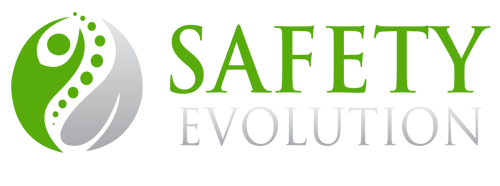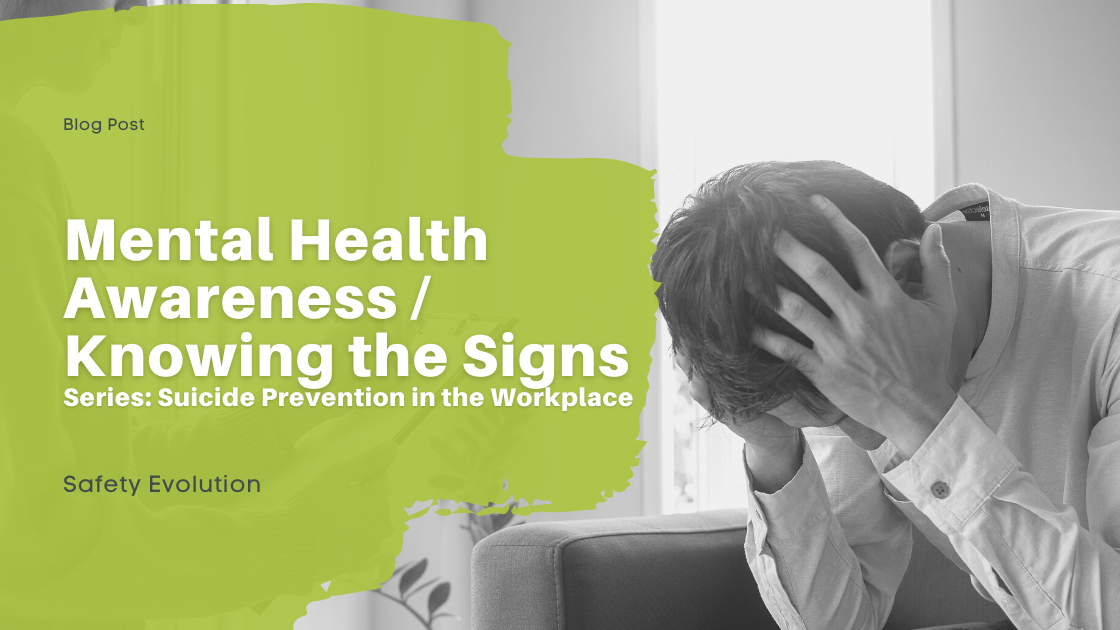It can be easy to get caught up in our own lives, problems, and stresses and therefore barely focus on what’s going on in the lives of those around us. But, it’s vitally important for employers and employees alike to be aware and know the signs of potential mental illness in themselves and others.
According to the Centers for Disease Control and Prevention, construction occupations have the highest rate of suicide, as well as the highest number of suicides, across all occupational groups. Safety Evolution is standing up with The Construction Industry Alliance For Suicide Prevention & Associated Builders and Contractors to combat these statistics and spread awareness.
Below are some points to be aware of regarding mental health in the workplace:
Identify those who may be at risk
- Do you know someone who may be dealing with a health issue, is going through a separation or divorce or is struggling financially? Maybe you know someone who is having a difficult time balancing their workload and is becoming overwhelmed? Without being invasive, make a note of it and offer help as you see fit. Those struggling with personal issues may not lead on how much those issues are bothering them while at work, so it’s important to look out for the signs and ensure those who may be struggling feel as supportive as possible.
Know the signs of when someone may be struggling mentally
- Actions such as withdrawing, engaging in risky behavior, displaying extreme mood or personality changes, talking about guilt, depression, or thoughts of self-harm or death, and expressing feelings of hopelessness are all signs of mental illness. If you notice a co-worker displaying these tendencies or verbalizing any of these feelings, or if you feel any of these signs, please reach out for additional support.
Ensure supports are in place.
- On a professional level, ensure your workplace is equipped to adequately support those who may be in crisis. This can include having managers trained in conflict response and having resources available such as access to therapists or other mental health support resources.
By ensuring you and your employees know the signs of potential illness, you empower everyone in your workplace with the knowledge to see the signs that someone (or themselves), may be struggling. By becoming aware, you have the potential to change the trajectory of a potentially dangerous situation to a positive one by encouraging help and by making mental health awareness a priority in your workplace.
If you or someone you know is struggling, please know that you are not alone. Below are some helpful resources to utilize in times of need:
United States
- Emergency: 911
- Suicide & Crisis Lifeline: 988
- National Domestic Violence Hotline: 1-800-799-7233
- National Hopeline Network: 1-800-SUICIDE (800-784-2433)
- Crisis Text Line: Text "DESERVE" TO 741-741
- Lifeline Crisis Chat (Online live messaging): https://suicidepreventionlifeline.org/chat/
- Self-Harm Hotline: 1-800-DONT CUT (1-800-366-8288)
- Essential local and community services: 211, https://www.211.org/
- Planned Parenthood Hotline: 1-800-230-PLAN (7526)
- American Association of Poison Control Centers: 1-800-222-1222
- National Council on Alcoholism & Drug Dependency Hope Line: 1-800-622-2255
- National Crisis Line - Anorexia and Bulimia: 1-800-233-4357
- GLBT Hotline: 1-888-843-4564
- TREVOR Crisis Hotline: 1-866-488-7386
- AIDS Crisis Line: 1-800-221-7044
- Veterans Crisis Line: https://www.veteranscrisisline.net
- TransLifeline: https://www.translifeline.org - 877-565-8860
Canada
- Emergency: 911
- Crisis Text Line (Powered by Kids Help Phone): Text "DESERVE" TO 686868
- YourLifeCounts.org: https://yourlifecounts.org/find-help/
- Crisis Services Canada: http://www.crisisservicescanada.ca/en/
- Canadian Association for Suicide Prevention: https://suicideprevention.ca/need-help/
- Bell Let's Talk: https://letstalk.bell.ca/en/
Subscribe below for more weekly content digging into all things Health and Safety including weekly toolbox talks!


